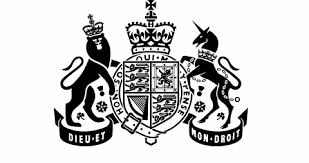A major area of work for any British Embassy or High Commission is consular responsibility: looking after British nationals when they’re abroad. This is one of the three priority aims of the Foreign and Commonwealth Office – together with protecting national security and building prosperity (our foreign policy as a whole is geared towards strengthening the international rules-based system, in support of our values – including human rights).
There are other places with more British expatriates and tourists than Ethiopia – Spain, Greece and Thailand to name a few – in which consular work takes up an enormous amount of time for our Embassies. But it’s still a big preoccupation of ours here. About 20,000 British people visited Ethiopia last year: a mixture of tourists, Britons with Ethiopian family or roots and, increasingly, businesspeople. The vast majority of course had trouble-free trips (it always helps when they follow our travel advice)! But if something does go wrong, there are ways in which we try to help: with everything from losing a passport to being the victim of a crime to being caught up in some kind of major crisis. You can see more about what exactly we can do here.
There are also a lot of things we can’t do. I’m afraid we can’t help non-British nationals (except in the rare cases where we have a specific agreement to provide such services), irrespective of how long they have lived in or their connections to the UK. We can’t interfere in another country’s judicial system. And we can’t help you if you lose your false teeth or you want a good restaurant recommendation (yes, we have had calls asking for help with these). I was once on weekend duty in another country years ago when a British tourist forgot where he was staying – all he could remember was that the hotel was a “big, brown building”. And a colleague was asked by another Briton to translate a poem into Hungarian so he could impress his girlfriend. She couldn’t help them either.
One of the most challenging situations for our consular team is when our citizens – and I stress that this happens only very (!) occasionally – get on the wrong side of the law abroad. In this instance there are things we can (and need) to do as a matter of urgency. Under the 1963 Vienna Convention on Consular Relations (VCCR), when another national is arrested countries are legally obliged to inform the detainee without delay of their rights under the VCCR and inform their Embassy where the detainee agrees to this. Right afterwards they should ensure that the Embassy can have access to their national wherever they are being detained. This is so that we can for example check on their condition to make sure that they are being treated well; that they are able to receive any medical support they might need; and to see if they have access to a lawyer if they wish. This is a very important right for any Embassy working abroad – not a privilege.And it’s part of an international system from which we all benefit.
Consular work of this nature gives us an insight into how countries treat their own nationals – it’s therefore very closely tied to our human rights work on the prevention of torture. In a few cases it also gives our work promoting the abolition of the death penalty an even greater sense of immediacy and importance than usual. I am very pleased that Ethiopia has had a moratorium on the death penalty for some time now – since 2007. I trust that this will continue, and hope that it will be formally abolished at some point in the future.

